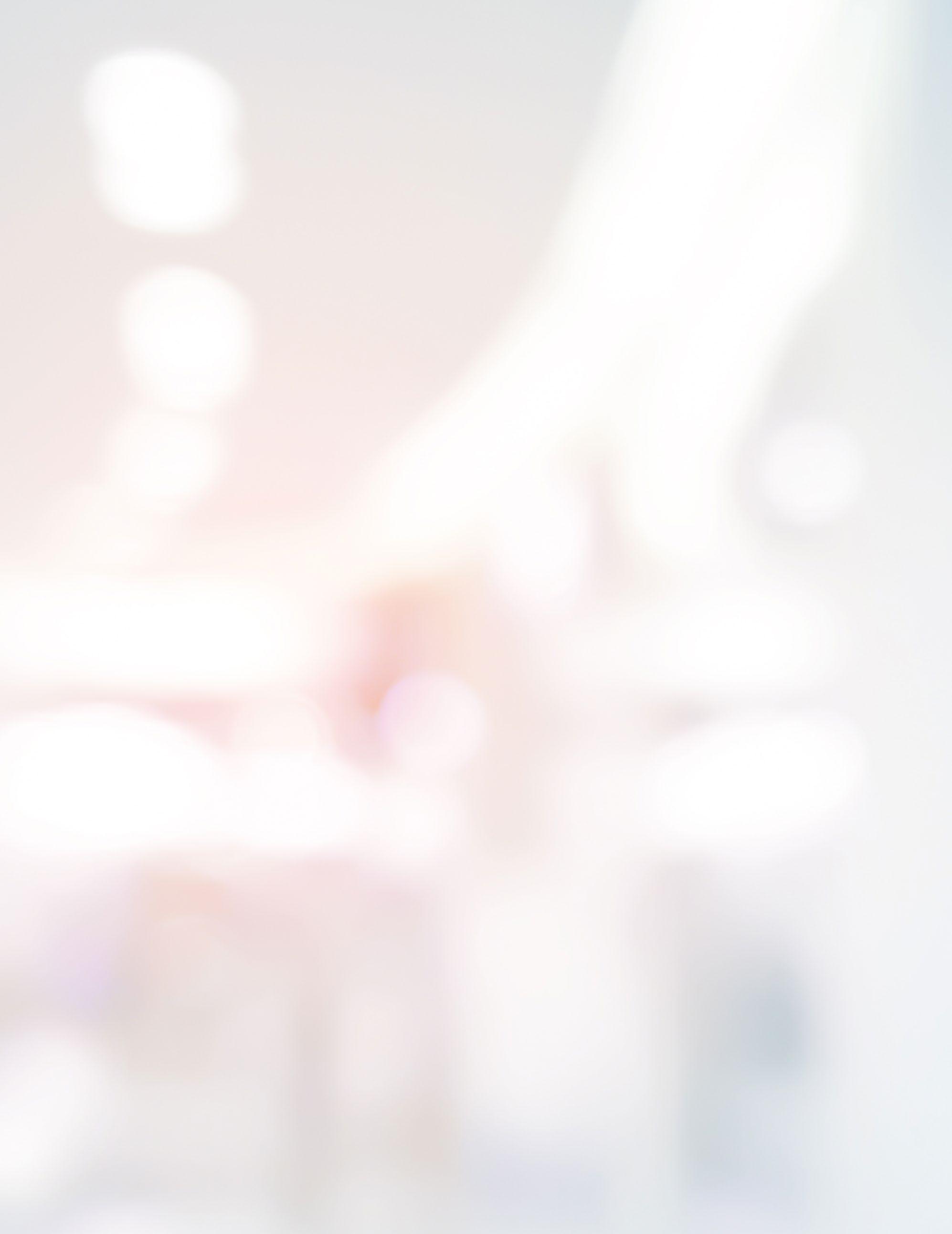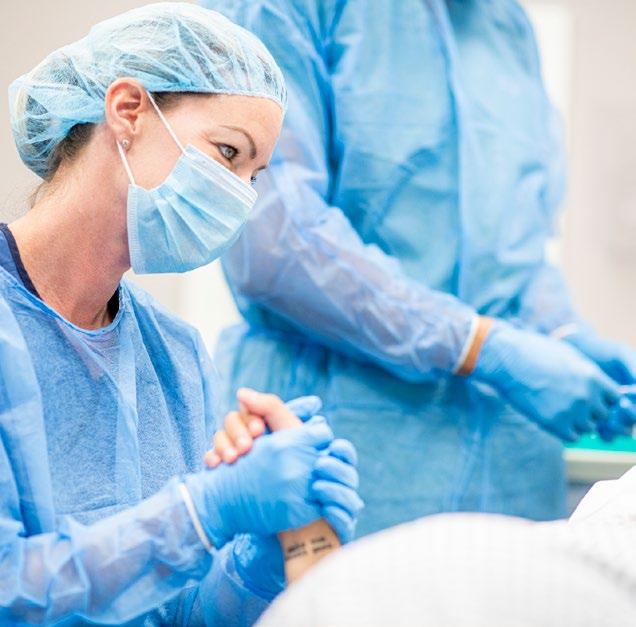
5 minute read
Care and Connection
from In Focus Spring 2020
by NCSBN
Care and Connection Rhigel “Jay” Tan Makes Masks and Face Shields for Las Vegas Area Health Care Workers
Rhigel “Jay” Tan, DNP, APRN, RN, PMHNP, GNP, ANP, FAAN, was standing in line at a Las Vegas Target store with a shopping cart full of pool noodles, the colorful flotation devices often seen at beaches and pools. A family in front of him in line were intrigued. The husband asked Tan, “What are you going to do with all those pool noodles?”
Advertisement
Tan is an assistant professor of nursing at the University of Nevada, Las Vegas, a practicing psychiatric nurse and a registered nurse member of the Nevada State Board of Nursing. When he told the family he was using the pool noodles to make face shields —improvised personal protective equipment (PPE)— for local hospitals, the wife started to cry.
“She told me that their son was a CNA in Reno, and that he was on a ventilator in the ICU there. They couldn’t visit him and they said that what I was doing really touched them. They offered me money to pay for materials as a way of honoring their son, who was fighting for his life. It was such a random moment. It really struck me.”
Tan began making face shields and masks from locally purchased materials in March when he learned there was a PPE shortage. For the face screens, he uses transparent overhead projector sheets, an idea inspired by his years as an educator. The idea to use pool noodles – which he cuts and uses as the cushion that curves across the wearer’s forehead – was born of equal parts creativity and empathy. “I never planned it. I was looking locally for materials that would be sustainable with the demand,” he recalls. “I knew there was a need for something cushioning the forehead.”
Tan found pipe insulation at a Home Depot and used it initially, but he says something was missing. “It was sad because it’s gray. If this is the face of a nurse who is taking care of a patient who has been isolated because of COVID-19, not even family members can be at the bedside. I just felt it should be something lively, something with more color.”

Tan has supplied hundreds of what he calls his iCareFaceShields and masks to seven acute care hospitals in the Las Vegas Valley. He has also supplied six long-term care and rehabilitation facilities.
Tan observed that due to the nature of the coronavirus, health care workers were wearing masks and face shields together for added protection. “The shields are usually only used in special procedures, mostly in the OR where there’s splashing. Because of the shortage of PPE, there are limited shields that would make it to the floor where the COVID-19 patients are. I knew I could help by creating an inexpensive version — something that is sustainable, with materials I could find within the community.”
When he started, Tan was making the masks and face shields with family and friends, but as demand increased he knew he had to find a way to enlist more support. He was able to get the word out through the connections he has formed over the
All images provided by Jay Tan. Top: Health care workers in an intermediate care unit-turned COVID unit in Desert Springs Hospital in Las Vegas model Tan’s face shields. Right: Volunteers helped Tan assemble face shields in a local park; Tan’s materials.

years. As former president of the Nevada Board of Nursing for three terms, people in the medical community knew him. He was also able to reach out to leaders in the Filipino community. “In my locality, Filipinos are the number-one Asian minority,” says Tan. “There are about 130,000 Filipinos here, and a lot of them are nurses, so I know their plight, I know their worries and I also know their needs.”

A group of nurses reached out to Tan and said they wanted to help. “Many of them are nurses on the front lines,” he says. “They saw the need and they wanted to give back on their off days. I knew I needed their help, but I couldn’t invite them to my home because my mother is 82 years old and my aunt who lives with us is 85 years old. I realized that the weather was going to be nice and thought, why not go to a park?”
Tan and his supporters set up tables and each person was assigned a specific area and task. “We maintained our social distancing,” he says. “When we got tired, we walked around took a break for our mental and physical health. And it really worked. Even in this situation and under these circumstances, it made them feel that they had contributed.”



Thank you nurses.

























